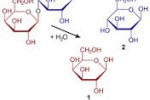 9 Terms
9 TermsHome > Industry/Domain > Biology; Medical > Human genome
Human genome
The human genome consists of 23 chromosome and the small mitochondrial DNA. 22 of the 23 chromosomes are autosomal chromosome pairs and the last one being a gender-determining pair. In total, the human genome contains the sequences of the 3 billion chemical base pairs that make up human DNA and approximately 20,000-25,000 genes. By understanding human genome, scientists are able to develop new medical applications that can significantly advance the state of health care.
Contributors in Human genome
Human genome
bilateral
Medical; Human genome
1) Of, relating to, or affecting the right and left sides of the body or the right and left members of paired organs. 2) Having bilateral symmetry.
aspergillosis
Medical; Human genome
1) Infections with fungi of the genus Aspergillus. 2) An infectious fungal disease that occurs most often in the skin, ears, nasal sinuses, and lungs of people with suppressed immune systems.

carbohydrate
Medical; Human genome
A sugar molecule. Carbohydrates can be small and simple (for example, glucose) or they can be large and complex (for example, polysaccharides such as starch, chitin or cellulose).
brace
Medical; Human genome
1) Orthopedic appliances used to support, align, or hold parts of the body in correct position. (Dorland, 28th ed) 2) An appliance that gives support to movable parts (as a joint or a fractured ...
calcinosis
Medical; Human genome
Deposition of calcium in normally non calcified tissue Definition from: Unified Medical Language System (SNOMED Clinical Terms) at the National Library of Medicine.
cell division
Medical; Human genome
The process by which cells multiply involving both nuclear and cytoplasmic division.
carboxylate
Medical; Human genome
To introduce carboxyl or carbon dioxide into (a compound) with formation of a carboxylic acid.
Featured blossaries
tula.ndex
0
Terms
51
Blossaries
11
Followers
Popular Hair Styles for Black Women
 9 Terms
9 Terms

